Mo Sett is waiting to greet us on the overcrowded platform at Kyaukme station (pronounced Chokmay). With a broad confident smile he reaches out for a handshake and introduces himself. We weave through the melee to a mini pickup truck for the usual bouncy, rattling ride to our hotel. There are two accommodation possibilities in Kyaukme. One is average, the other awful. We’ve opted for the average, and as there is no competition, it is expensive at 30 dollars a night. The fat,sleepy unshaven manager has the monopoly hotel. He is uncharacteristically miserable and seems to forget what he did or said after five minutes. “You pay?” “No we just paid!”.
Mo seems to be a guide of a different order to any we’ve encountered so far. Thirty years old, he has a philosophy degree (a combination of eastern and western) from Mandalay university and a Luxembourger girlfriend in Yangon. He speaks good English and his ambition is to work for an Eco NGO in Yangon. He’s also politically aware and tells me within minutes of our meeting, the breaking news that Aung San Suu Kyi will appear at the International Court of Justice to defend Myanmar against accusations of genocide.
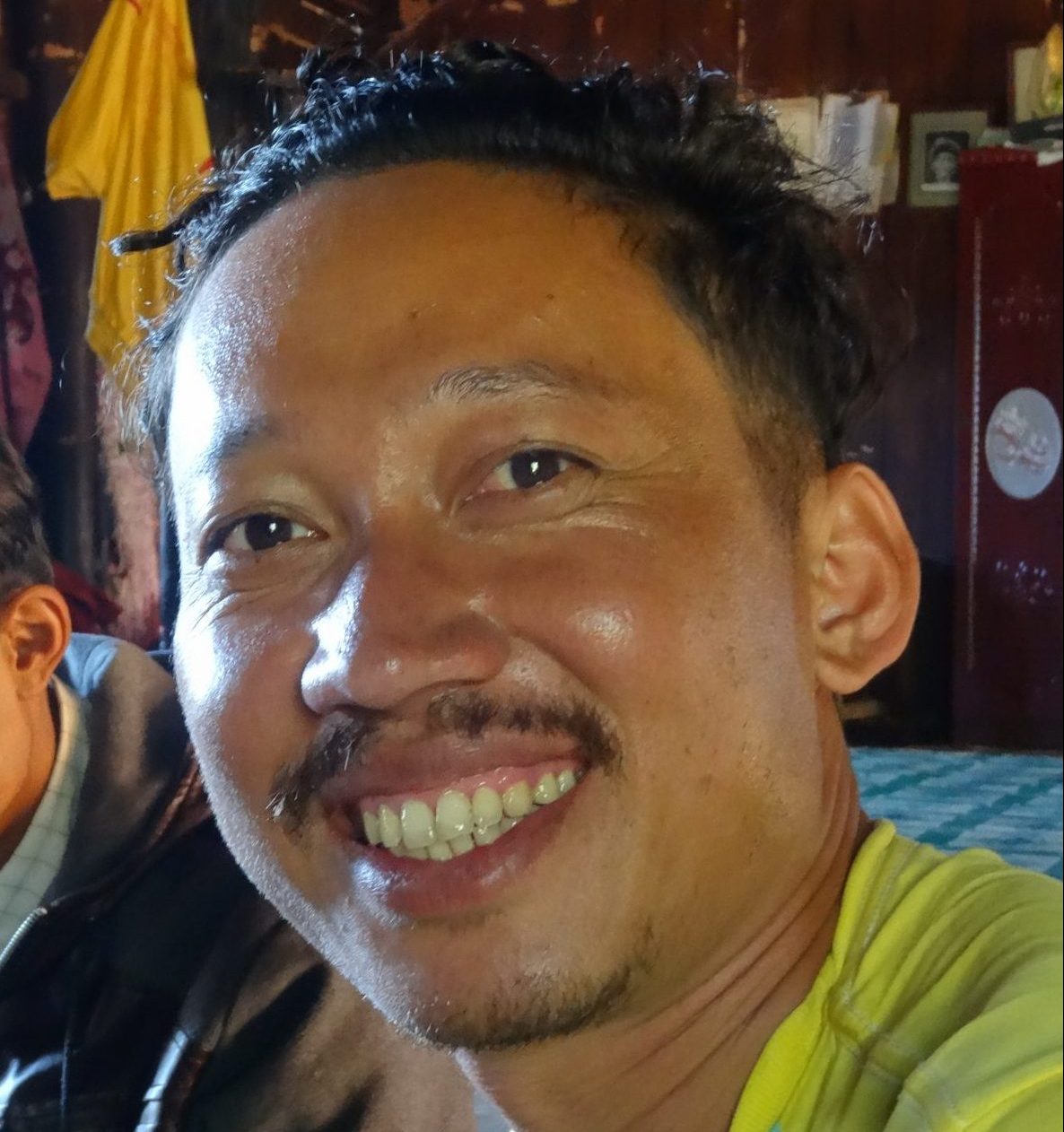
We are physically and metaphorically near the end of the line. The quaint mouse infested train we just left will rattle and squeal slowly onwards to Lashio beyond which lies the Chinese border. The region to the north of us is a no go zone where a loose alliance of ethnic armies is waging intermittent war against the Burmese army – the ruthless Tatmadaw. Despite Aung San Suu Kyi’s NLD party’s numerical superiority in parliament and her appointment as State Counsellor (not the president), it is the Tatmadaw that literally calls the shots in Myanmar. They will fight or strike deals with ethnic minority factions, and sometimes that fighting can take the form of brutal suppression, as in the case of the Muslim Rohingya along the border with Bangladesh. Amidst reliable reports of widespread torture, rape and summary executions, thousands of Rohingya have been cleared out of their villages and forced into Bangladesh. Their villages have been torched and the Bangladeshi border has been sealed off to prevent their return.
But that seems like a distant place, far away from the peaceful rolling forested hills of northern Shan state. Mo meets us the following morning at our hotel and we climb aboard the mini pickup to drive to the start of the trek. It’s a one day climb to a mountain top village where we will spend the night. Then a day’s descent. My blisters have healed but I’ll need another stick – my third.
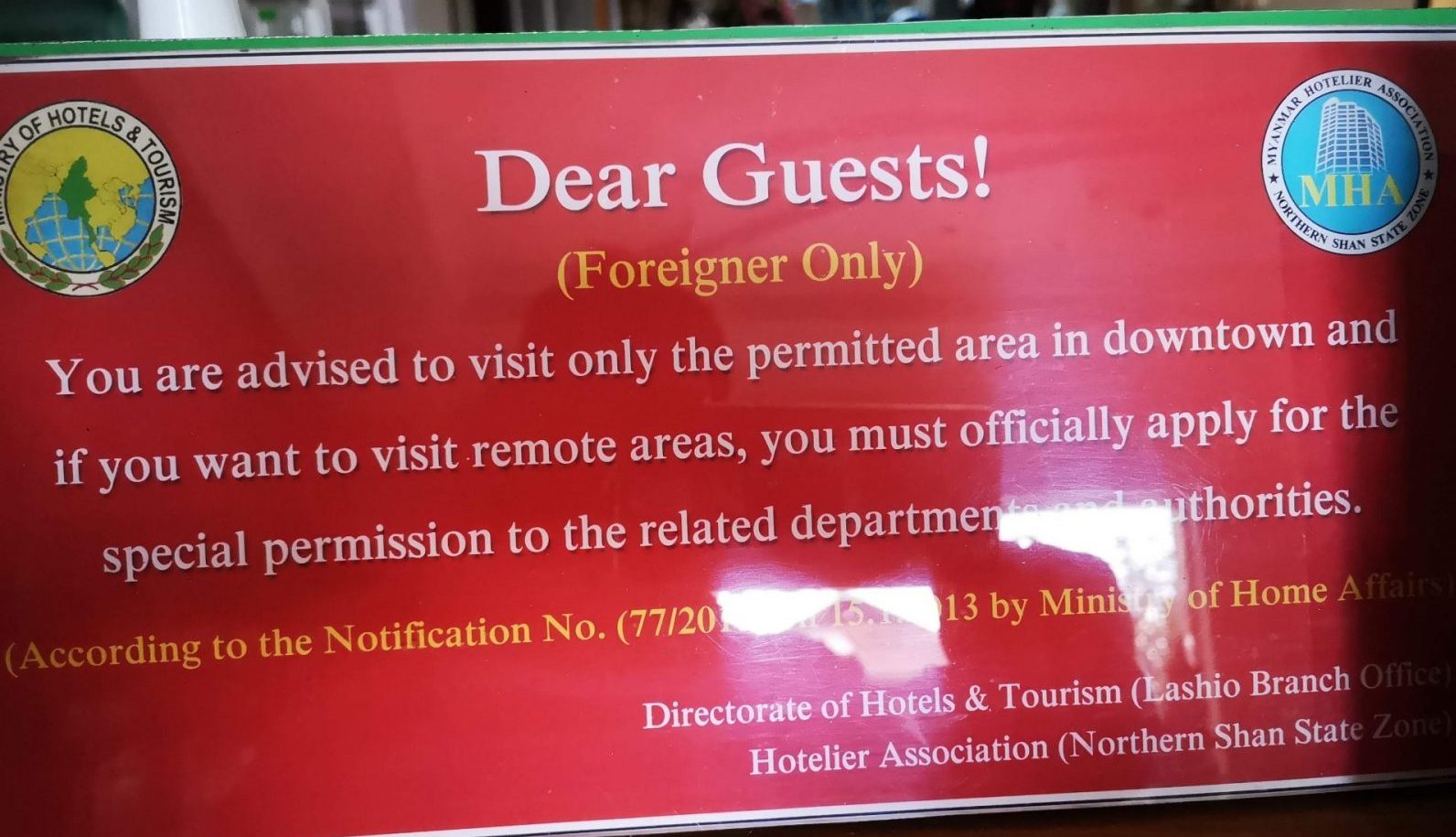
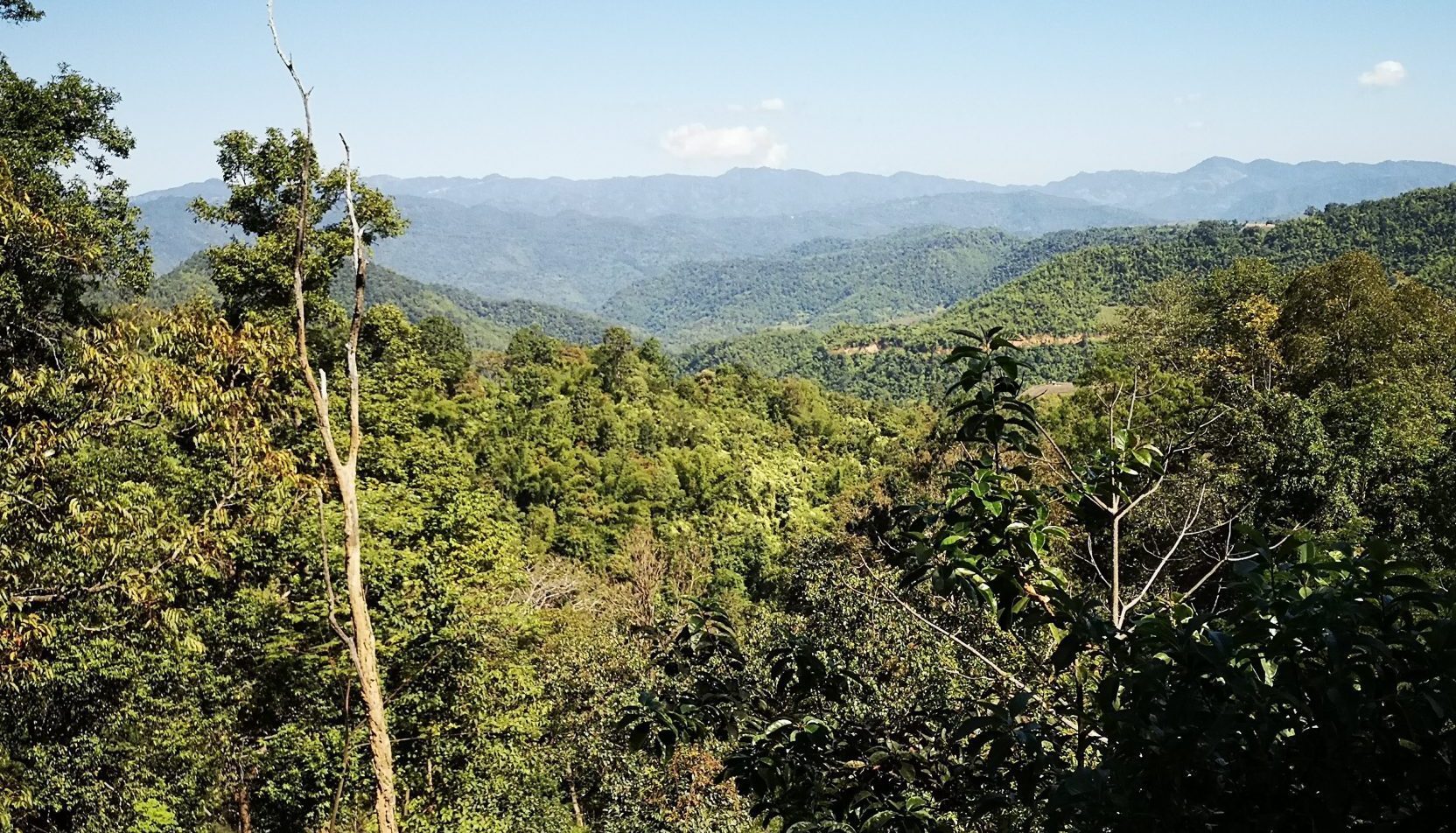
A Brief Tourist Welcome
A View From The Ascent
We slowly ascend through unharvested corn fields. Mo tells us that he is a corn farmer on the side but that his regular customers, the Chinese, are boycotting all Shan corn because the Shan are successfully protesting against and delaying the construction of a hydroelectric dam on the Ham Ma river. What will happen? I ask him. The Chinese will get their dam in the end, he replies.
Beyond the corn fields is a wooden shack where we are introduced to a strong, wiry, toothless farmer and his family. Twenty years ago he cleared the surrounding land to cultivate corn. Today he will trailblaze with his machete to open up for us the little used path to the summit. But first he offers us green tea which we accept. Jo looks on in dismay as he rinses the small tea cups with his filthy fingers. It’s foolish but we feel it’s rude to refuse a cuppa. We drink. It’s tasty but the cups are a bit whiffy. Some hours later Jo confides to me that she strongly suspects it is the cause of her ailing guts.
We continue slowly upwards in the hot sun – my T-shirt drenched with sweat. The path is densely overgrown and our trailblazer works hard to clear the way through thick shrubs of yellow sunflowers. We reach a dense clump of bamboo and I spot my next stick. I ask Mo if it’s possible to cut one for me. It’s not a problem. And Jo wants one too, and Mo. Now we are like three pilgrims climbing the mount!
I glance back down at the landscape. There are many trees but of course all the great teak trees have gone – I’ve yet to see one – and large swathes of land are under cultivation. There are plenty of birds about – we can hear them, and we occasionally catch a glimpse of small bright blue, yellow and green birds but they swiftly disappear into the dense tree canopy. Jo is darting about in the fields, trying in vain to get a photo of one of the many large colourful butterflies.
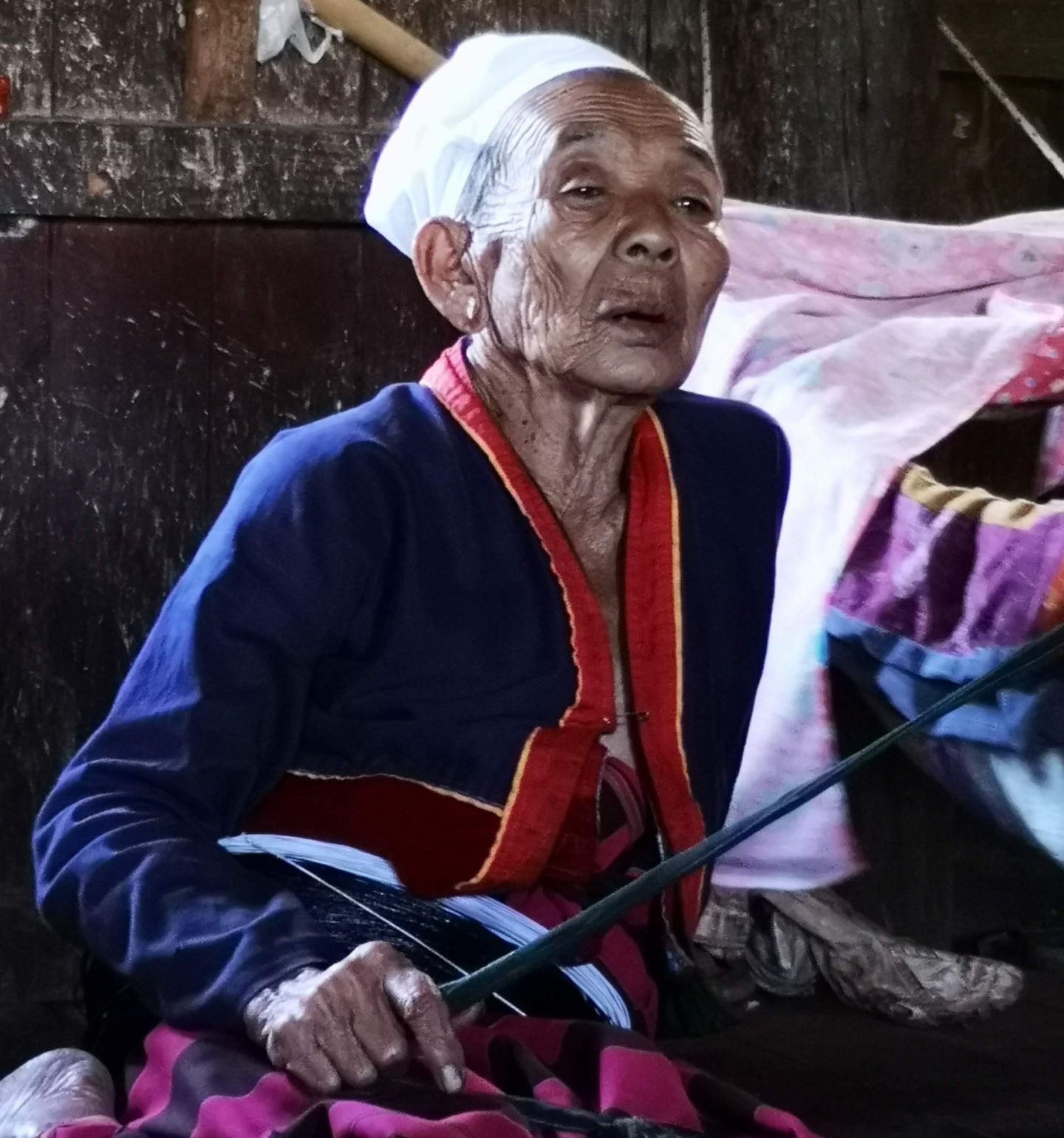
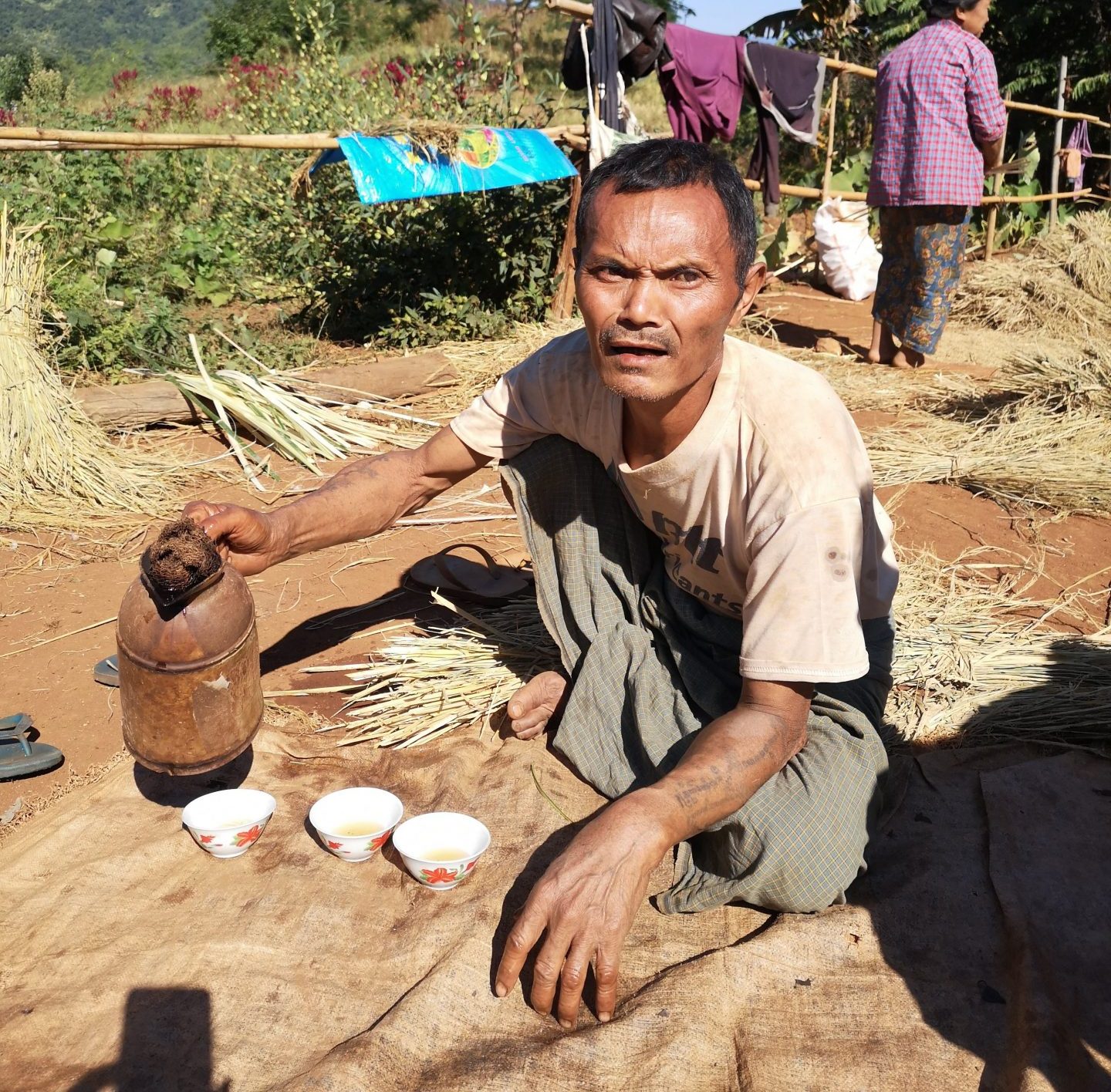
Pa O Grandma
The Trailblazer Brewing Tea
It is just after noon and very hot. We’ve reached a Pa O (Jo recognizes the costume) village where we will rest at a villager’s home for lunch. The Pa O are a tribe of the Shan people. There are Nepalese people living in these hills too. Since the elections in 2015 the west has looked on optimistically towards a bright democratic and free Myanmar. But Myanmar is a complex country and democracy will not come easily or quickly. There are 135 different ethnic groups in the country with their own culture and language – and many of these groups have achieved or have aspirations towards self rule or outright independence. Democracy could tear the country apart. The press is more free yet if anybody steps over the invisible line of what is considered acceptable reporting they can quickly find themselves imprisoned. Witness the incarceration of two Reuters journalists for their reporting of the summary execution of ten Rohingya muslims in 2017.
Mo has an anonymous friend who rides ahead of us on his unreliable Chinese motorbike with food and water (and rice wine for this evening). He stops at appointed homes and helps prepare our meals. The house where we pause for lunch is a long single storey wooden structure on raised pillars with a corrugated iron roof. Despite the windows with open wooden shutters, inside is semi darkness. The perpetually lit fire hearth is in front of the entrance. As in all rural Myanmar houses there is no chimney and at the end of two days my unwashed hair, body and clothes will reek of woodsmoke. This house is home to nine people of three generations, including the village chief. Grandma is in the room and she takes an affectionate liking to Jo, solicitously stroking her arm. Her appearance is striking, deeply wrinkled ochre skin, a clean shaven head partly covered by a thin white turban. A two month old infant, swaddled in blankets, swings in a makeshift sackcloth cradle suspended between two posts. Attached to it is a string. Grandma sits quietly staring out of the window rocking the baby to sleep. We sit on the floor in the centre of the room and our anonymous cheroot smoking chef serves us a fine lunch of green beans, rice and fried cauliflower. We are hungry.
Climb a mountain, sit cross legged on the floor for an hour then try standing up. The locals of all ages do it so gracefully. I do it like some disabled geriatric. We continue our walk into an altitude perfect for tea plantations. Unlike tea growing in India or Sri Lanka, here it is a cottage industry with tea bushes spread unevenly about the landscape, interspersed with native trees and shrubs. It’s still very hot – it will start to cool a little after 3pm when the sun will begin its descent and the shadows will lengthen – a wonderful time for walking.
We settle into a steady upward trudge with some lengthy periods of silence. After such a silence I ask Mo what he thinks of Aung San Sun Kyi. He tells me that she is still very popular with the people. I tell him that she is still respected internationally too but her response to the Rohingya debacle is a problem. She is the daughter of the assassinated pre military junta president Aung San. He remains a national hero. She has political pedigree, so important in Asia (Indira Gandhi, Benazir Bhutto). She is strong and patient having spent 15 of the 21 years from 1989 to 2010 as a political prisoner under house arrest. She won a landslide victory in the 2015 elections when the government transitioned to civilian rule, but the parliament is rigged in such a way that the military still have real control of the constitution, the armed forces and the judiciary. For her outspoken stance against tyranny in Myanmar she was awarded the Nobel Peace Prize in 1991, Yet she has refused to condemn the actions of the military against the Rohingya. Why is this? She wants real political power which cannot be achieved by taking on the military or alienating the populace where anti Rohingya sentiment prevails. She is popular with the people but that popularity is not guaranteed. It has been said of her that the mix within her of global human rights icon and steely Myanmar politician is bound to be uneasy. Now it is being severely tested, but her domestic popularity is more important to her than her global one. Without that she will never acquire the power that is the life blood of every ambitious politician.
And so what if the country is controlled by the military? you may ask. It’s all very well for me to be an idealistic judgemental westerner. Aside from the barbaric acts against the Rohingya – what does it matter? It doesn’t affect me directly. But it affects Mo and all ordinary Burmese citizens. Tourism is in decline either because people are afraid of the reported violence or they’re taking a moral stance. Except for the Chinese who visit in their thousands and spend nothing with the locals and who don’t have a moral stance. And most Westerners don’t boycott countries for moral reasons. I worked in South Africa in the 1980s when it was considered bad form to even visit the country. I knew people who demonstrated their abhorrence of the apartheid regime by refusing to eat Cape apples. What did that achieve? It put African apple pickers out of work, it assuaged the boycotters guilt and made them feel righteous. This goes on all the time. Recently, the musician Nick Cave was publicly criticised for performing in Israel. He defiantly defended his action and I applaud him for it and all like him. I encourage everybody to visit Myanmar, strive for the ideal of community based tourism, spend your money with the ordinary people, listen to their views and opinions and give them yours. That’s the enrichment of travel,
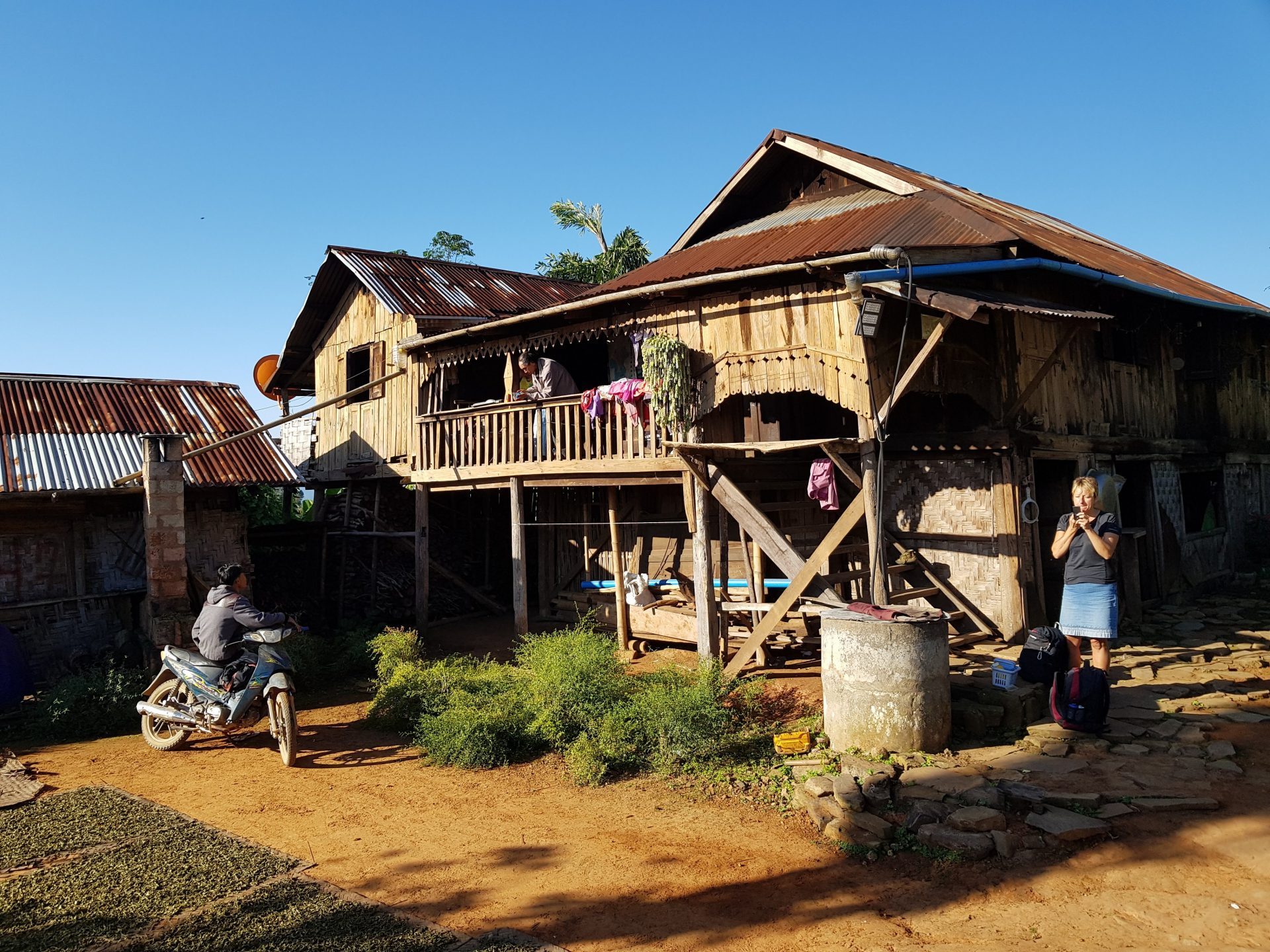
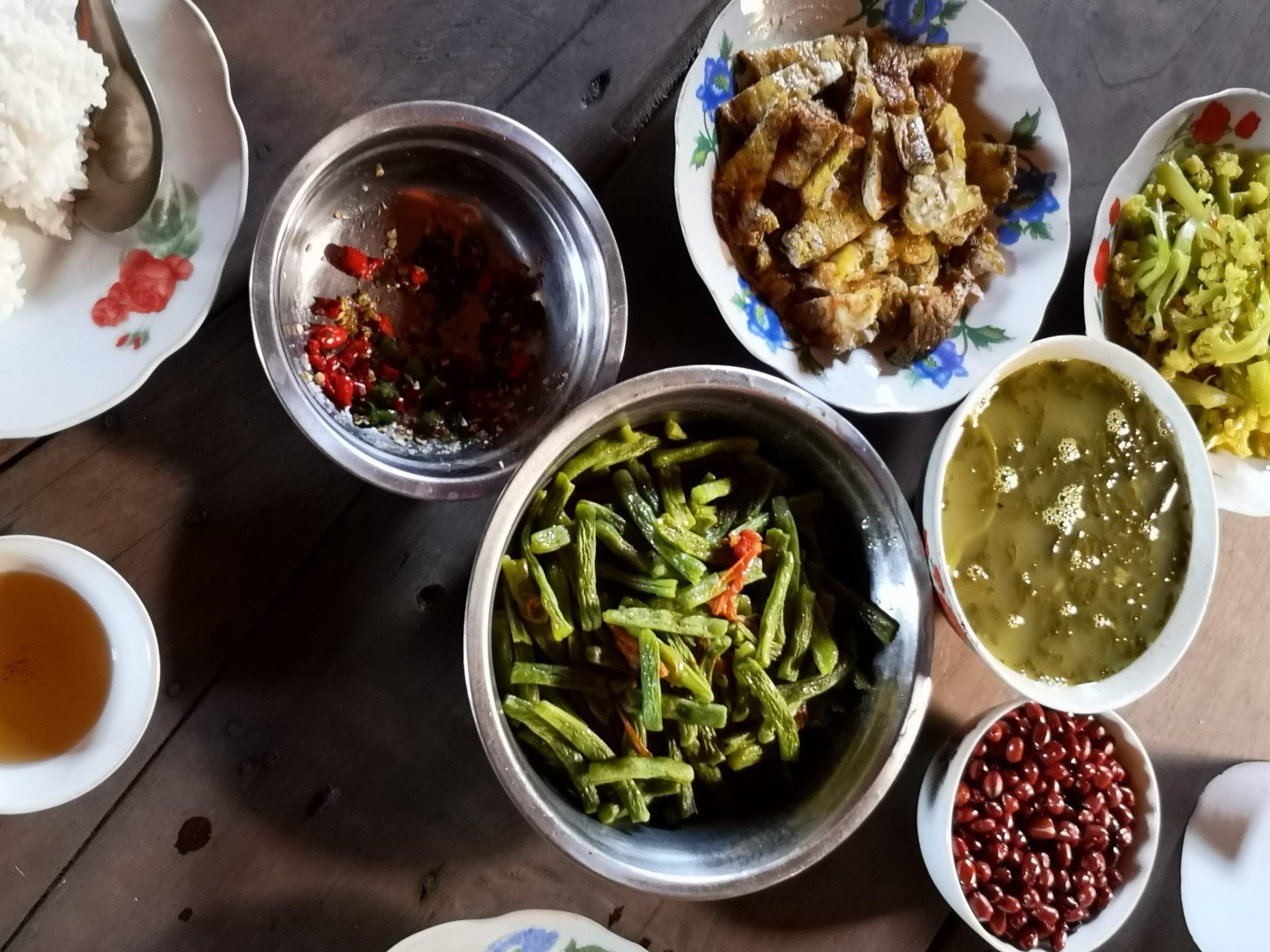
Our Home for The Night
Breakfast, Lunch and Dinner
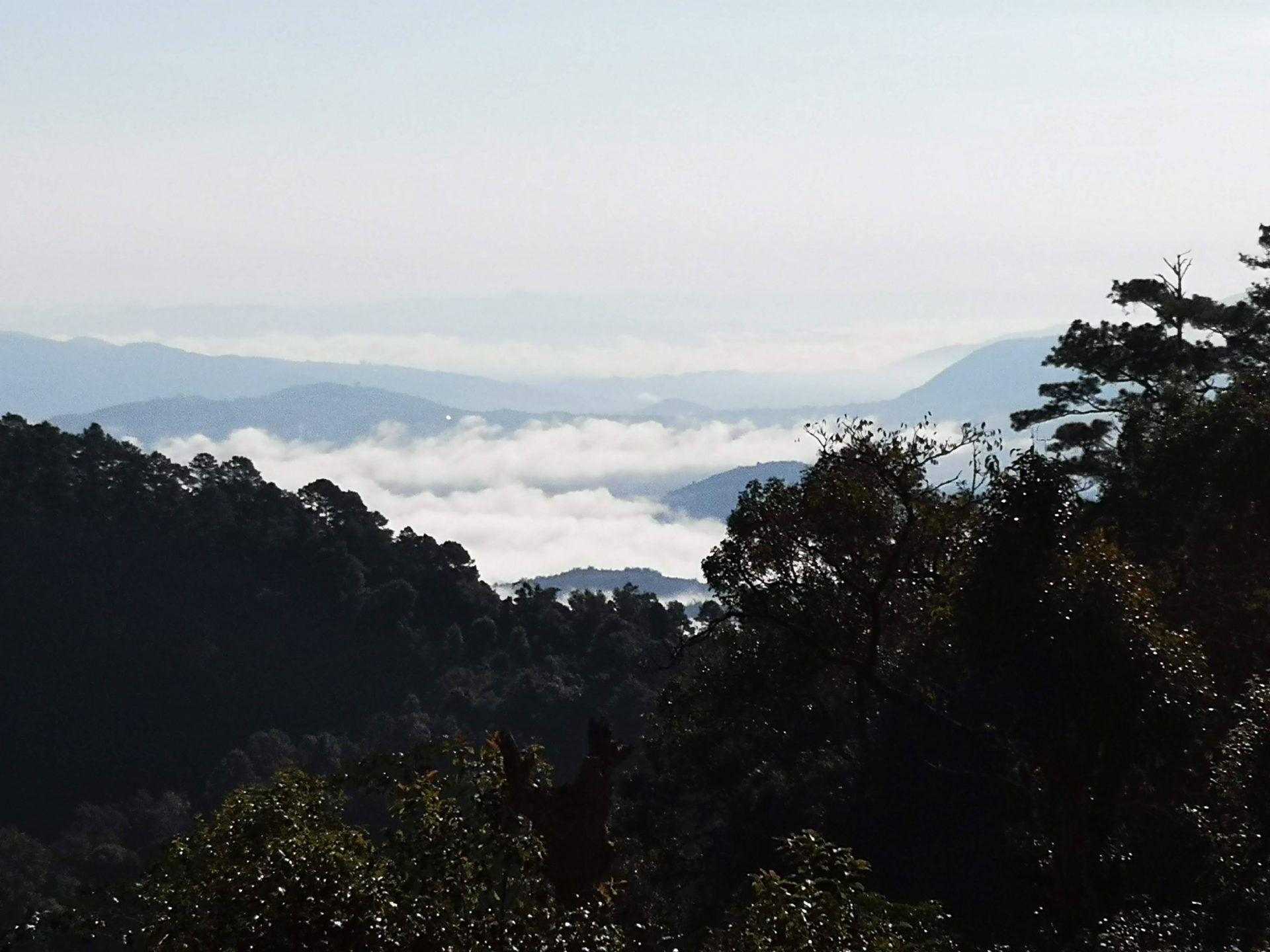
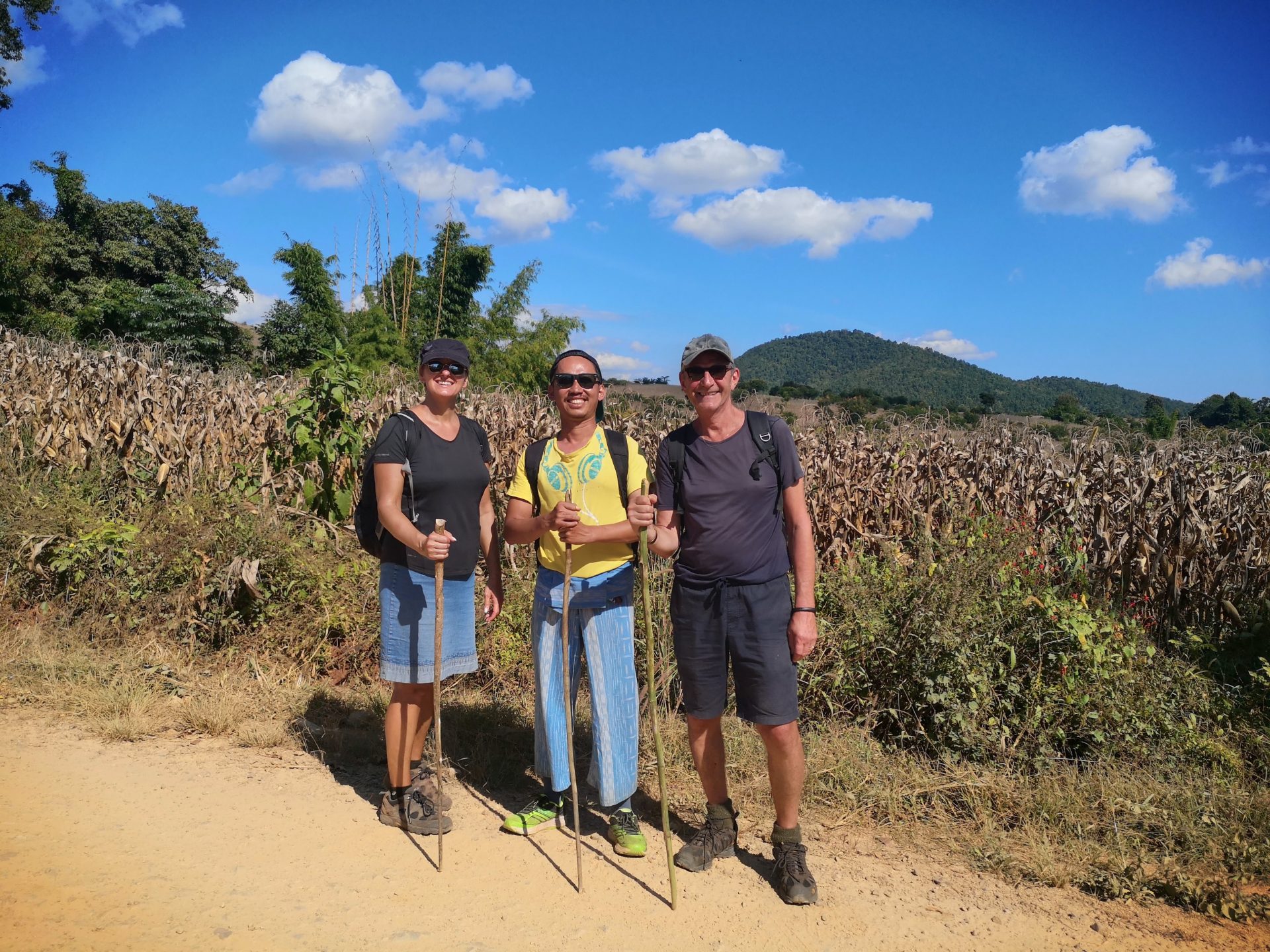
On The Descent
Me and my Mo Jo!
Mo has had only two trekking jobs this season. His 56 year old mother who, as a younger woman, contracted hepatitis B from a visit to the dentist, died recently of cancer, without diagnosis or the possibility of treatment – there is none available except for the rich. The military budget in Myanmar is almost three thousand million dollars per annum. This vast sum is spent ostensibly to protect the nation from outside aggression but in reality it is spent on lining the pockets of the Tatmadaw and their cronies and maintaining their ascendancy. Compare this to the health budget in Myanmar which is less than 100 million dollars (life expectancy is 65 years for men and 69 for women). But there are some reasons to be optimistic. Spending on education, which has been woefully neglected for all of Myanmar’s history has more than doubled in the last five years to just over a thousand million dollars – a remarkable statistic.
In the lengthening shadows and the cool air we approach the summit and our home for the night – a two storey wooden construction raised on wooden pillars. We are shown to our sleeping quarters upstairs where we will cosy up on the floor with Mo and the chef. Woodsmoke wafts up between the floor boards from the hearth below. The toilet is out the back down rickety steps made from glass bottles, rotten planks and loose stones. Don’t you do out there alone at night cautions Jo. The bathroom is an old oil drum with a plastic tap. Dinner is the same as lunch but accompanied by a litre plastic coke bottle of homemade rice wine. At 48 percent it has a kick and the shots are generous. By the time the papaya comes round I’m very chipper.
We turn in soon after we’ve eaten as it’s an early start tomorrow.I end the day wearing a head torch reading Orwell’s Burmese Days. Above me, on a roof beam, rests the biggest, yellowest, stripiest spider in Myanmar. In the middle of the night I wake up feeling very cold, my feet are freezing. Mo’s head is wrapped in a hoodie. I reach for my water – the bottle feels like it’s been in the fridge. I must use the outside facility but can’t bring myself to face the cold. Eventually I creep out quietly, trying not to wake anybody but the floorboards and doors creak. On the veranda, I jump. Something is on my arm. Oh my God, it’s the spider. I turn to brush it off. It’s Jo’s hand – my night guide to the privy. The sky is clear and at this altitude the stars are quite incredible. What looks like a thin wisp of high cloud is actually the edge of the Milky Way – an unimaginable number of stars are visible to the naked eye. It’s a rare and wonderful sight.
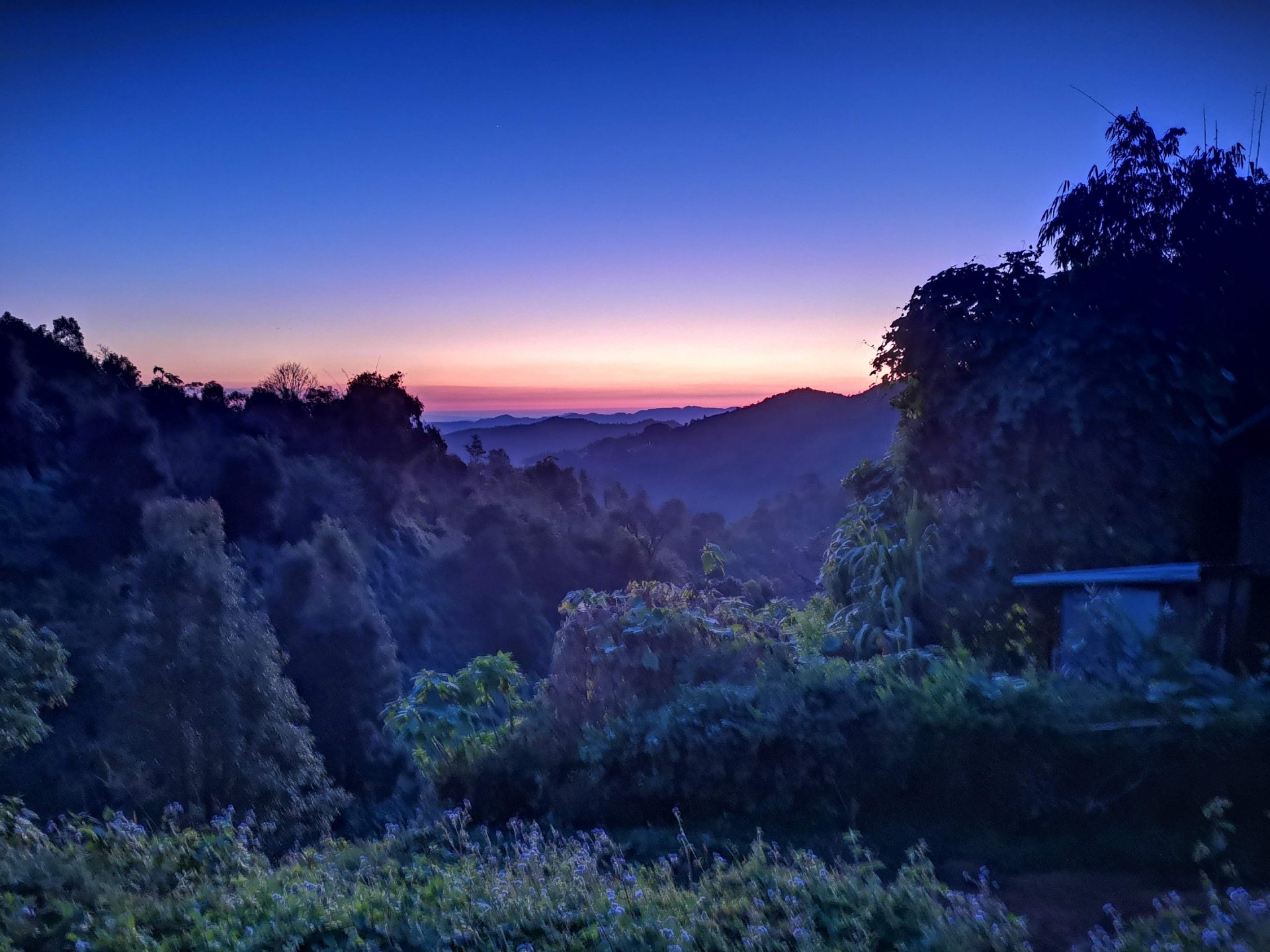
Breakfast next morning is the same as yesterday’s lunch and dinner. I can’t cope with rice and noodles any more and definitely not to start the day so I just drink the tea. The return trek is mainly downhill. It’s very hot and tough on the toes. Mo has blisters. By early afternoon we are off the mountain where a mini pickup awaits to take us back to our hotel. We settle our bill with Mo and he is delighted when I give him my copy of Andrew Marshall’s The Trouser People: a travelogue in contemporary Myanmar and a description of the remarkable life of George Scott, a late Victorian British colonial administrator in Burma who’s arguably greatest legacy was the introduction of soccer to the country. Myanmar, like the rest of the planet is soccer mad. Who you support? Brighton and Hove Albion. Who they?
We have one more night in Kyaukme which is more than enough. I did ask Mo what there is to do in Kyaukme. He replied very candidly – nothing. Jo describes it as a bit of a wild west frontier town. There are few restaurants and virtually no tourists. We eat at the Chapati Place, an Indian restaurant that serves only three things all involving chapatis. It does a roaring trade.
Our brief visit to the edge is over. Tomorrow we will take a minibus to Mandalay and then on towards Bagan – Myanmar’s number one tourist attraction.
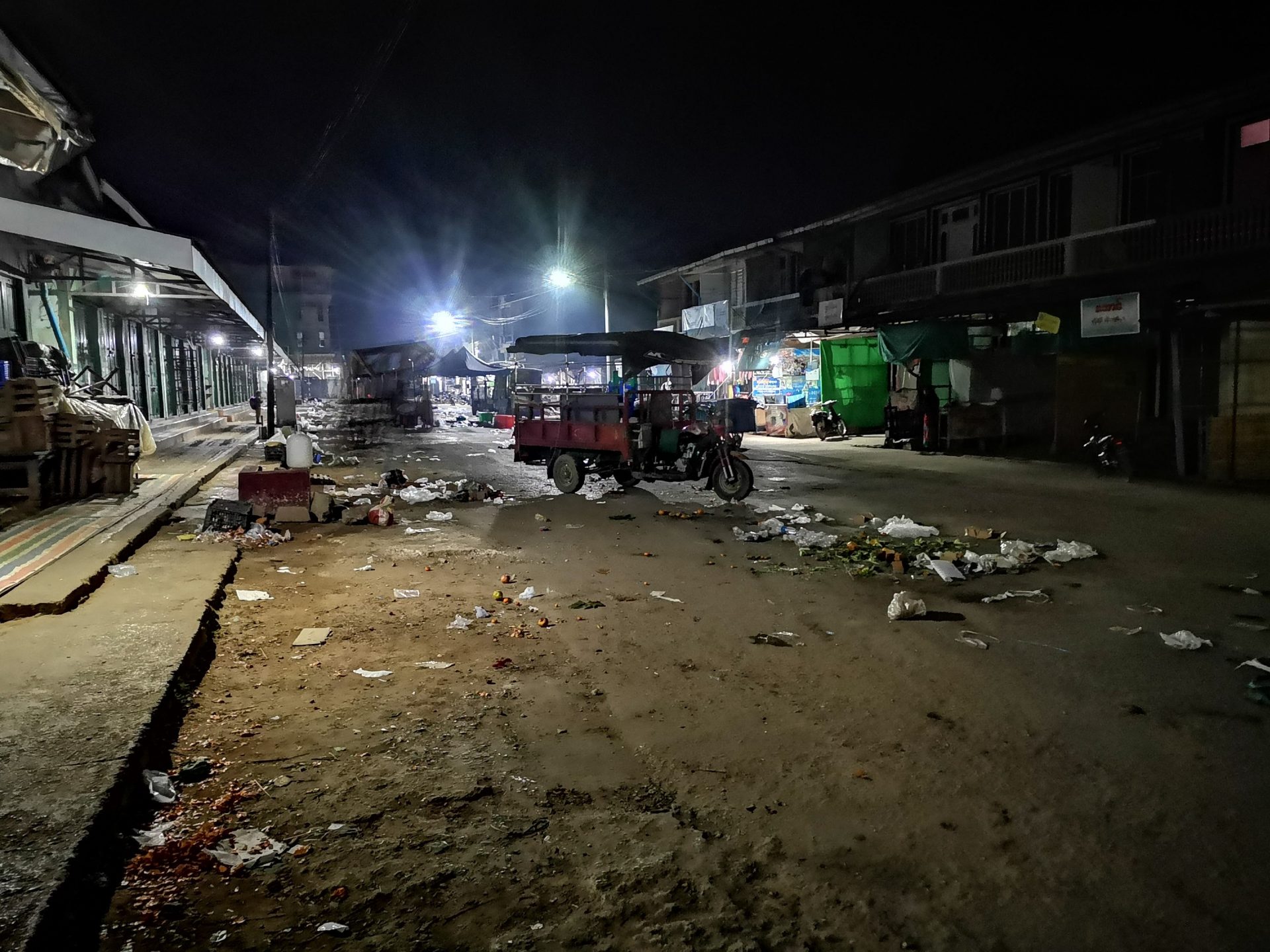
Downtown Kyaukme
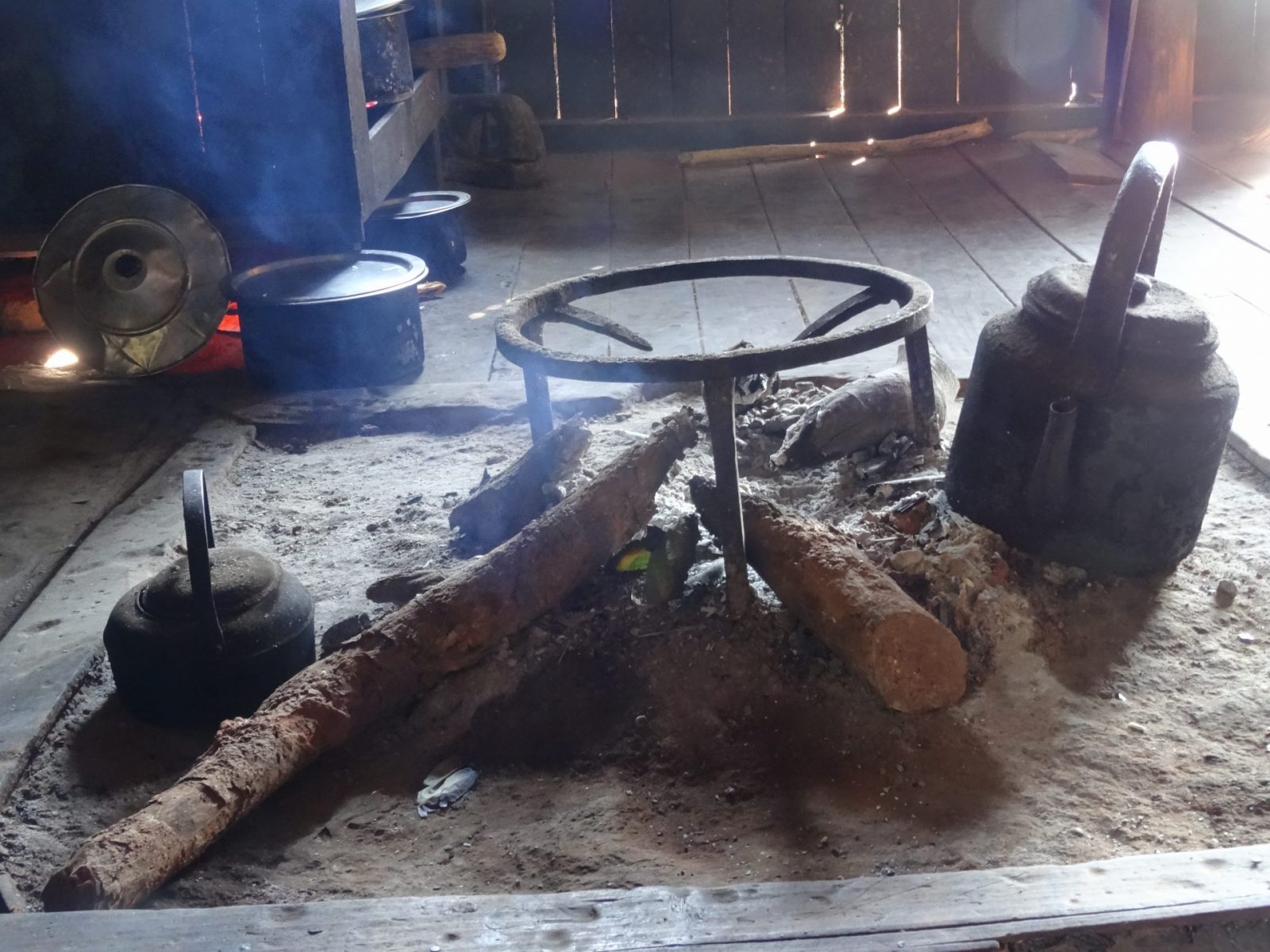
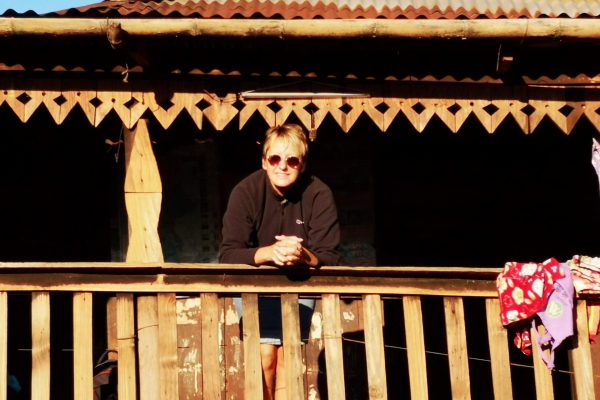
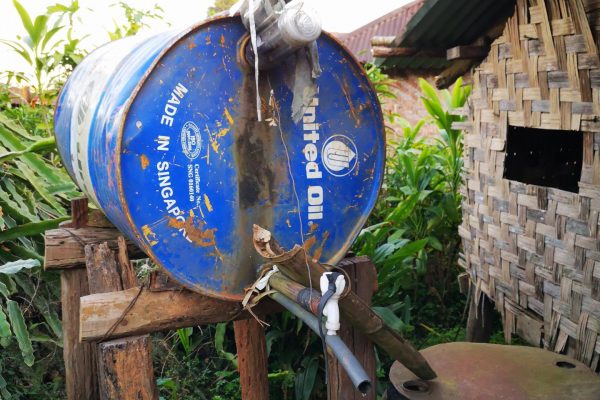
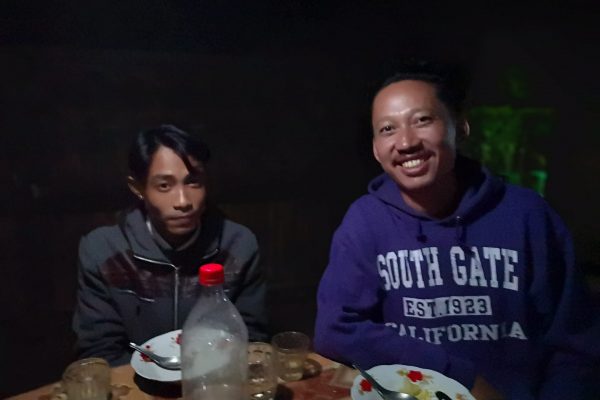
“Me and my Mo Jo!” – very funny!